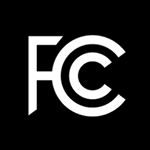FCC Chairman Julius Genachowski is ready to move ahead with the process of cobbling an order of business for reclaiming portions of the spectrum currently in the hands of television broadcasters and making them available for “flexible wireless broadband.” The NAB has pledged to work with him while making sure free over-the-air broadcasting is unharmed.
Genachowski said broadcasters have been cooperative in examining the prospects of turning over a portion of their spectrum in exchange for some of the proceeds the spectrum brings in at auction.
“It’s a win-win-win,” Genachowski declared. “The country can benefit from freeing up spectrum for mobile use. Taxpayers can benefit from billions in auction revenue. And the current holders of spectrum – including local television stations — can receive a capital infusion and still be able distribute their programming by sharing with other stations, or through other platforms such as cable and satellite.”
Genachowski said three items on the topic will be included on the agenda of the November FCC Open Meeting.
Speaking at the FCC’s spectrum workshop, Genachowski said, “The first is a notice of proposed rulemaking that would lay essential groundwork for implementing incentive auctions quickly should Congress act. The item will look at lifting technical restrictions so broadcast spectrum can be used for broadband. It will explore a licensing framework that, for the first time, would allow stations to voluntarily ‘channel share.’ And it will examine new ways to improve the digital television reception of VHF, to make it a more effective option for TV broadcasters.”
He continued, “The second item I will ask my colleagues to consider is a Notice of Proposed Rulemaking to expand our experimental licensing program. Experimental licensing has played a valuable role in many wireless innovations. For example, you’ve probably seen the TV ads featuring new potentially life-saving anti-collision systems in cars. That technology requires spectrum, and it was developed using an experimental license. Experimental licensing also played a key role in White Spaces and Super Wi-fi.
The Commission will consider steps to expand experimental licensing including easing testing restrictions on universities, research organizations, and other institutions that are developing new services and devices that utilize spectrum. The goal is to accelerate innovation – reducing the time for an idea to get from the lab to the market. It would also help the FCC make smarter, faster decisions, by giving us on-the-ground intelligence on interference issues.”
And he finished up his agenda summary: “The third item for the November agenda is a notice of inquiry to accelerate opportunistic uses of spectrum – the key word being opportunity — including technological advances that enable greater use of secondary markets. Right now, there are swaths of spectrum that are being used but not to their full potential. The FCC is looking at a number of different ways to unlock that resource, including improved databases, sensing technology, or new innovations in the works at various private companies. The item will look at how these technological innovations can be used to foster more robust secondary markets, through dynamic spectrum leasing, and better information on spectrum use, building on our innovative public spectrum dashboard. We hope this item will help us identify ways to improve the efficiency of spectrum, and launch new value-providing markets.”
Dennis Wharton of NAB commented, “NAB looks forward to working with policymakers to ensure that efficient spectrum deployment matches actual spectrum demand, and that America’s leadership in providing the finest free and local broadcasting system in the world is not compromised.”




